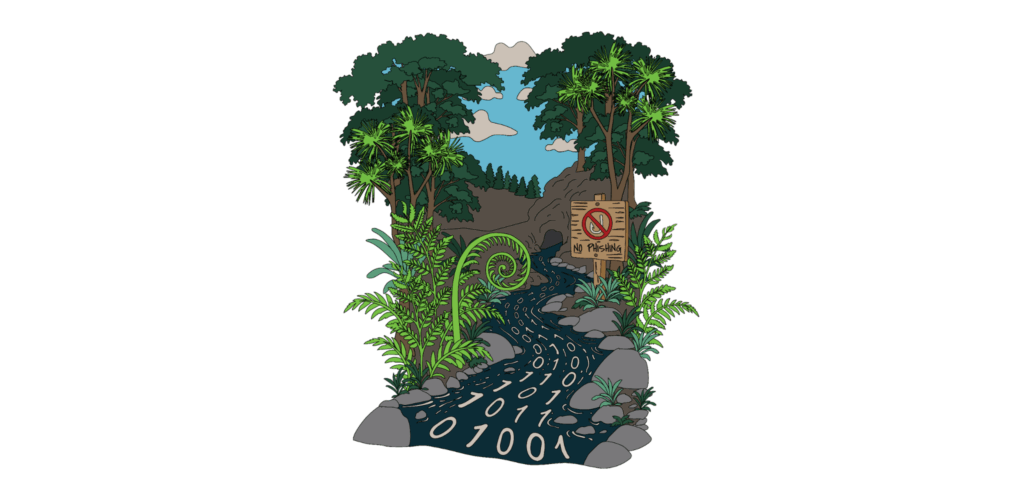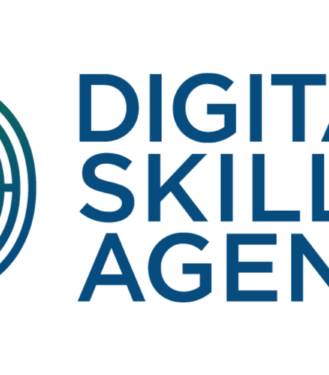We recently caught up with Glenn Sparrow, who co-founded Pākiki Security, a specialised penetration testing company based in Christchurch. As one of the few cyber security firms from Canterbury, Glenn shared his thoughts on why being part of Canterbury Tech has been so valuable for their business.
Building Cyber Resilience with Local Expertise
In a landscape where most New Zealand cyber security firms have been acquired by offshore interests, Pākiki Security stands out as a proudly Kiwi-owned alternative. Founded in early 2024, this boutique security firm specialises in penetration testing with a uniquely local mindset.
The Power of Local Cybersecurity
Pākiki Security was born from market shifts and a simple observation: security professionals prefer working with smaller, more agile companies rather than large corporate entities. As Glenn Sparrow from Pākiki explains, “Pretty much all of the security firms in New Zealand over the last five to seven years have been gobbled up by VCs and owned offshore. And penetration testers don’t like that.”
This trend created a gap, particularly in the South Island, for security experts who could build face-to-face relationships with clients. “There’s very few IT Security companies on the ground in the South Island, so there are very few people that a client can sit down with and have a coffee, or a beer.”
Based in Christchurch and Wellington, Pākiki can support clients across New Zealand with their team of specialists who bring over 45 years of combined IT industry experience, with over 25 years specifically in security.
Ethical Hacking with Purpose
Pākiki’s core service is penetration testing – essentially, ethical hacking that identifies vulnerabilities before malicious actors can exploit them. Their approach is refreshingly straightforward:
“We come in and assess whether your environment is secure or not. You’ve got a product? We’ll determine if it’s secure, identify all the vulnerabilities, and recommend what you should do about it,” explains Glenn.
What sets them apart is their vendor-agnostic approach. Unlike many competitors, they don’t sell or implement security products. This allows them to provide truly independent advice without any conflict of interest.
Community-Focused Security
Beyond technical expertise, Pākiki embodies a commitment to community that influences everything they do:
– They donate 5% of profits as koha to charities chosen by their staff
– An eco-sourced native tree is planted for every day sold
– They provide staff with meaningful benefits that support wellbeing
– They’re actively involved in the Canterbury tech community
“Being part of a community is giving as much as it’s getting,” Glenn emphasises. This philosophy extends to how they approach networking and business relationships – focusing on genuine connections rather than hard selling.
Growing Against the Odds
Starting a business in 2024 presented significant challenges. Glenn candidly shares that six months into the venture, “We had some pretty quiet months initially. It was a pretty trying time last year to start a business. Without the support of communities, such as Canterbury Tech we wouldn’t be where we are now.”
However, persistence has paid off. Pākiki is building a healthy pipeline of work that extends out to the new year. This growth isn’t just about filling up the calendar. It’s a testament to the trust Pākiki has built in a short time and the increasing demand for their specialized services.
Glenn reflects on the turnaround with a mix of relief and excitement: “We’ve had a couple of clients asking us to put a project into the calendar for next year. This forward-thinking approach from clients not only provides financial stability but also allows Pākiki to plan for sustainable growth and potentially bring on more local talent in the future.
A Different Kind of Security Partner
Unlike many competitors with exit strategies aimed at acquisition, Pākiki has taken a firm stance: “We actually will never sell to VCs. We don’t want to do that.”
This commitment to remaining locally owned aligns with their mission to deliver world-class penetration testing and cyber security advice while fostering a culture of excellence. They’re not just protecting systems – they’re helping build a more secure digital environment for New Zealand businesses.
As cyber threats continue to evolve, having a local partner who understands both the technical landscape and the unique context of New Zealand businesses becomes increasingly valuable. Pākiki Security offers that rare combination of world-class expertise with local presence and values.
Is your organisation’s cyber security in the hands of people you can actually meet for a coffee? Perhaps it’s time to consider a more local approach to this critical business function.
The Dual Value of Community Membership
For Glenn, joining Canterbury Tech served two key purposes. First, there’s the practical business benefit: “Purely putting a sales hat on, it’s lead generation,” he admits. In a niche field like cyber security, making connections is vital.
But equally important is the opportunity to contribute: “It’s about the ability to give back into the community and be a part of what is a phenomenal ecosystem.” This balance of giving and receiving value forms the foundation of meaningful community engagement.
Glenn elaborates on this point, emphasizing that being part of a community isn’t just about what you can get out of it. “Being part of a community is giving as much as it’s getting,” he says. “You can’t sort of rock up to a Canterbury Tech networking event and expect to suddenly find a whole lot of leads.”
Instead, Glenn stresses the importance of putting in effort and being genuinely interested in others. “You’ve actually got to do a bit of mahi and talk to people,” he explains. But it’s not just about talking – listening is equally crucial. “You have to listen as well. And that’s sometimes the hardest thing.”
This approach to networking and community engagement goes beyond simple transactional relationships. It’s about building genuine connections and understanding the needs and interests of others in the community. Glenn notes that this can be particularly challenging for sales professionals who are used to immediately discussing their products or services. However, he believes that taking the time to know people personally creates stronger foundations for future business relationships.
Supporting the Next Generation
One aspect of community membership that Glenn particularly values is connecting with students.
Recognising that students represent “the future of our community,” Glenn sees engaging with them as an investment in Canterbury’s tech ecosystem. This perspective highlights how community membership extends beyond immediate business benefits to long-term industry development.
The Community Advantage
For anyone considering joining Canterbury Tech or similar professional communities, Glenn’s experience offers a compelling case. Beyond the networking opportunities and business leads, there’s the chance to learn something new at each presentation and to be part of a thriving ecosystem.
The key is approaching membership with the right mindset: come to contribute, listen more than you speak, build genuine relationships, and avoid the hard sell. With this approach, community membership becomes not just a business strategy but a rewarding professional experience.




